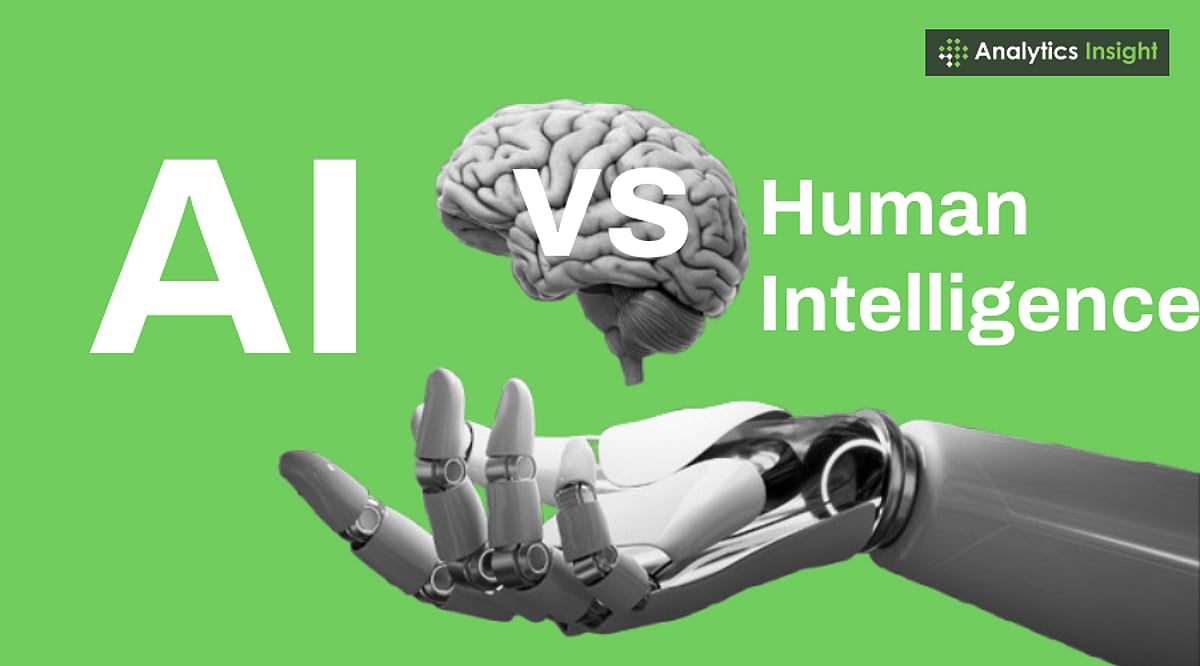AI and Human Intelligence: A Synergistic Future or Imminent Rivalry?

The rapid advancement of artificial intelligence (AI) has sparked an essential debate: will AI serve as a complement to human intellect, or will it pose a challenge? As computers increasingly perform tasks that once required significant cognitive effort, there is both excitement and concern about the future roles of humans. While AI attempts to mimic certain human abilities, it fundamentally operates differently from the human brain. Understanding these differences and the potential for collaboration offers a balanced perspective on the evolving relationship between AI and human intelligence.
AI excels in speed, data processing, and task automation but lacks emotional depth and creativity. In contrast, human intelligence thrives on intuition, empathy, and abstract reasoning, making it irreplaceable in many areas. The future may lie in a synergy where AI complements human strengths rather than replacing them.
The Distinct Nature of Human Intelligence
Human intelligence is deeply rooted in emotion, innovation, ethical reasoning, and self-awareness. These qualities develop over time, shaped by culture, experiences, and environment. Unlike machines, humans learn through intuition, empathy, and creativity, in addition to data. Critical thinking, self-reflection, and compassionate action are essential components of human intelligence.
For example, decisions in fields such as social work, ethics, and art frequently rely on emotional intelligence, a trait difficult for machines to replicate. Even in technical roles, human ingenuity remains crucial for problem-solving and innovation. This form of intelligence is adaptable, context-dependent, and guided by values, not just logic.
The Capabilities and Limitations of Artificial Intelligence
Artificial intelligence relies heavily on data, mathematical principles, and processing speed. AI systems are designed to analyze patterns, interpret images, generate content, and predict outcomes through extensive data analysis. These tasks are often performed with greater speed and accuracy compared to human capabilities.
AI thrives in environments with clear rules and established facts. In finance, healthcare diagnostics, and logistics, AI can enhance efficiency, reduce errors, and boost productivity. However, AI lacks consciousness and cannot comprehend beyond its programming. Without genuine understanding or emotions, AI operates within a confined scope, regardless of its sophistication.
“AI can perform certain tasks with exceptional speed and accuracy, but it falls short when it comes to creativity, ethical reasoning, and emotional intelligence.” — Dr. Emily Chen, AI Researcher
The Future of AI and Human Collaboration
Some fear that AI tools could replace many human jobs, leading to a competition between humans and machines. This concern holds some validity, as machines are already transforming industries by taking over repetitive and data-intensive tasks. As AI continues to advance, even more complex jobs may be at risk.
However, this rivalry is not a zero-sum game. AI tools can perform tasks faster and potentially more accurately, but they struggle with creative thinking, moral judgment, and emotional understanding. Humans still excel in leadership, strategic planning, and innovation.
Instead of viewing AI as a threat, many experts advocate for a collaborative model. This approach suggests that AI can augment and enhance human abilities. For instance, AI tools can assist scientists in processing data more efficiently, allowing them more time for research and discovery. In medicine, AI can aid doctors by identifying potential risks, but the final decision still relies on human judgment and empathy.
“The integration of AI and human intelligence creates a hybrid model where machines handle computations, and humans contribute insights. This collaboration often yields stronger outcomes than either could achieve alone.” — Professor John Smith, Cognitive Scientist
Beyond the Myths: The Realistic Outlook
Speculation about AI completely surpassing human intelligence is common in futuristic narratives. Some predict that machines could eventually outperform humans in all cognitive domains, becoming superior in every aspect. However, current limitations make this scenario unlikely in the near future. Machines lack consciousness, moral reasoning, and the capacity for abstract thought—key components of intelligence that cannot be replicated through algorithms or machinery.
Dominance in logic does not equate to supremacy in wisdom. True intelligence extends beyond knowledge; it encompasses compassion, meaning, and purpose—areas where machines are unlikely to excel.
The relationship between AI and human intelligence is not merely a straightforward rivalry. It is an evolving partnership. Machines offer remarkable speed and precision, while humans bring depth, emotion, and values. The most intelligent approach may not be to question who will prevail but how both can collaborate effectively. As technology advances, the goal should not be to replace human intellect but to enhance it. The future will likely be shaped not by competition or domination, but by thoughtful collaboration. A future where humans and AI work together may showcase the best of both worlds.





